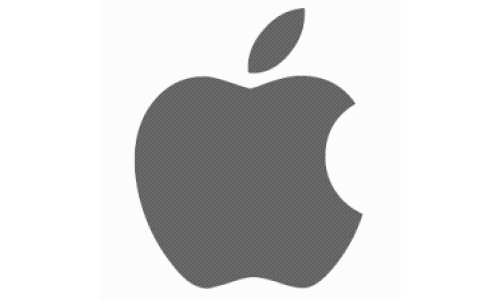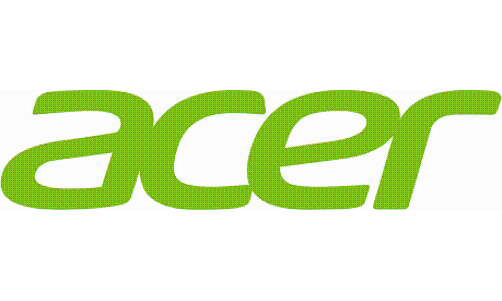For more than ten years, Maxim has helped companies build business processes - first at Deloitte and Sberbank, the largest investment bank in Russia, then became a product manager at the DFIN (Donnelley Financial Solutions) fintech project. In this interview, Maxim spoke about his role as Product Manager, motivating the team and bringing projects to success.
What are the top product skills you believe are the most important?
I think leadership skills because a team primarily makes a product. The team has to be well-coordinated and go in the same direction. The product manager has a vision to lead the team and the product.
The most important quality there, I would say, is being open-minded - the ability to always look at a problem from different angles. Creating and developing a product never follows some standard guideline; there are a million ways to achieve goals, outperform competitors, or solve problems in a new way. It is crucial to find the strength to search for unique solutions.
Another quality that defines a strong Product Manager is decision-making: you would often have a situation when you need to decide with the only information available.
How to pick the right direction when you need to change/update your product?
You should always remember what problem you are solving and who you are solving it for. Often, when you start working on a project, you think that this specific decision can make your company a unicorn. However, in order to launch, pivot or update a product, you need to understand what customer pain you are solving and base your decision on data. To determine the right direction, you need to go through all the stages of customer development.
https://slidemodel.com/templates/customer-development-process-powerpoint-template/customer-development-process-distilled/
Form a pool of hypotheses and problems that customers face, validate them, determine the product-market fit, to what extent this product is in demand and "go out into the street" to test it.
In the case of existing products, you have your user base and a better understanding of their needs, but the principle remains the same - the project's driving force is your customers' needs. I like the User Persona method - when you compose a typical detailed image of a user, indicating their hobbies, what they like or not so that every time you want to add a new feature, you think - like, yes, it will be useful for Mark, and this is what he wants.
How do you know if a product launch is successful?
Not all products are destined to change the world and become a unicorn, and that's OK. It's important to set clear quantitative goals before launching a product for what counts as a successful launch and what doesn't. This is necessary to keep the team and yourself on track and quickly change or cancel bad-performing projects. Only if all the set goals are met, worth moving on to the next steps.
What's the most fascinating for you about working in product management?
The feeling that you are creating something new right here and now, improving the product that several people use. Previously, when I worked in finance, the work was reduced to reports and building financial models. I repeated it every day, and sometimes it felt that this was for the sake of work, not to move somewhere. But now something new happens every day. Engineers experience similar feelings because they create this new thing, but as a product manager, I can see the whole picture and realize its scale. I enjoyed feeling that I am helping this big machine to move forward.
Do you have any tricks and tools to prioritize tasks?
It's crucial to keep a list of all product-specific and personal tasks. Development control systems such as Jira and MS Teams collaborate on the project. There are tools and approaches that I use to increase my efficiency too. Since my time consulting at Deloitte, I've been using the simplest check sheets, often handwritten in a notebook.
I religiously write out all the tasks in the morning. When you cross out a task with a pen in a notebook, you get more pleasure than when you mark the checkmark in the program. In general, there are many different methods, which I understood that for this to work effectively, discussing task lists should take minimal time.
I use a priority matrix to categorize tasks as important, not urgent, or urgent. Of course, tasks always come urgently and in large numbers, and it is difficult to clearly understand how high the priority should be; it is impossible to do everything right now as we would like. But you can form guidelines for yourself about what you are trying to achieve and what goals you are pursuing. Keeping these high-level priorities in mind makes it easier to prioritize specific tasks.
What is the most challenging about the work of a Product Manager?
I'd say to keep in mind a global picture of what is going on, but at the same time be able to dive into details. The PM should keep their finger on the pulse of all things going on around the product, which is often difficult. It's always a balance between control and delegation, and if the PM tilts on one side, things might break.
It's important to be a team leader so that people follow you.
How do you motivate your team?
Humor often falls into place and helps smooth things out on Zoom calls. I recently read a book by Stanford professor Jennifer Aaker on how jokes increase efficiency, called "Humor, Seriously: Why Humor Is a Secret Weapon in Business and Life", and my experience confirms that it works.
Competent leaders know how to prioritize tasks - for example, give the team something that will challenge, but at the same time not suck all their strength, as well as honestly share information about the company's problems, but at the same time not demotivate, but only build up the level of trust.
It's also important for people to see that their work has value, is used by customers, and that what they do every day makes sense.
How is data important when making a decision?
The amount of information collected has never been greater, and this makes it difficult for organizations to manage and analyze their data.
In fact, NewVantage Partners recently reported that 98.6% of executives indicate that their organization aspires to a data-driven culture, while only 32.4% report that it's successful. A 2018 IDC study noted that organizations had invested trillions of dollars in modernizing their business, but 70% of these initiatives fail because they prioritized technology investments without building data culture to support it.
You cannot rely on interviewing people and your intuition in the digital field. For example, comparing the number of people who have used a specific feature after its release gives a clear understanding of whether customers need it or not. Analytics on when customers are using a product most provides insight into when to schedule technical work to affect the least number of people. But the figures by themselves don't carry new information - it is important how these figures are analyzed and what conclusions are drawn from this.
But still, human factors will be important in decision-making. In addition to quantitative indicators, we should develop better qualitative strategies.
Have you had conflict situations when you had to convince your stakeholders to do the other way around?
Our organization has a well-established approach to the areas of responsibility when everyone has their freedom to make decisions where they have more expertise. Of course, sometimes there are situations when you have to prove that your approach is right. Top management may not know all the details of the product, but they certainly have more experience in business development. The main thing is to maintain a constructive approach - to convince when you see that you are right, but to agree with others when they are. Only there it's possible to achieve a win-win situation.
Why do you think Product Management is so hip and people want to become PMs ubiquitously?
First of all, it's the consequence of the growth of digital or technology-related products. The product approach has proven to be effective, and the market demand continues to grow.
It's also popularizing new ways and approaches to work in business. Nowadays, people are more effective when they have more authority and more responsibility because there is a sense of ownership for some part of the work. The CEO can't make all decisions, so there are CEOs of products now - those who understand them in detail can make decisions to develop it in the right direction. Product managers had been there before; it's just that now it has taken shape, and we have this formal title.
Some people consider the role of a Product Manager as a premise to become an entrepreneur later. There are fewer risks since they don't manage their own money, authority, and resources, plus a team and support from more experienced colleagues.














